Diamond Head | Interview | “Am I Evil?”
Diamond Head are one of the most influential English heavy metal bands that originally formed in 1976 in Stourbridge, West Midlands.
Brian Tatler’s brother David inspired him to learn guitar when he was 14 years old. Brian eventually recruited school friends Duncan Scott, Sean Harris and Colin Kimberly to form Diamond Head in 1976. At the age of just nineteen they became part of the New Wave of British Heavy Metal, gigging and performing their own material across the country. In 1980 they opened for AC/DC and Iron Maiden whilst recording and releasing their debut album ‘Lightning To The Nations’ aka “The White Album” on an independent label. This masterpiece is now a heavy metal classic, revered by bands such as Metallica and Megadeth who cite Diamond Head as one of their greatest influences.
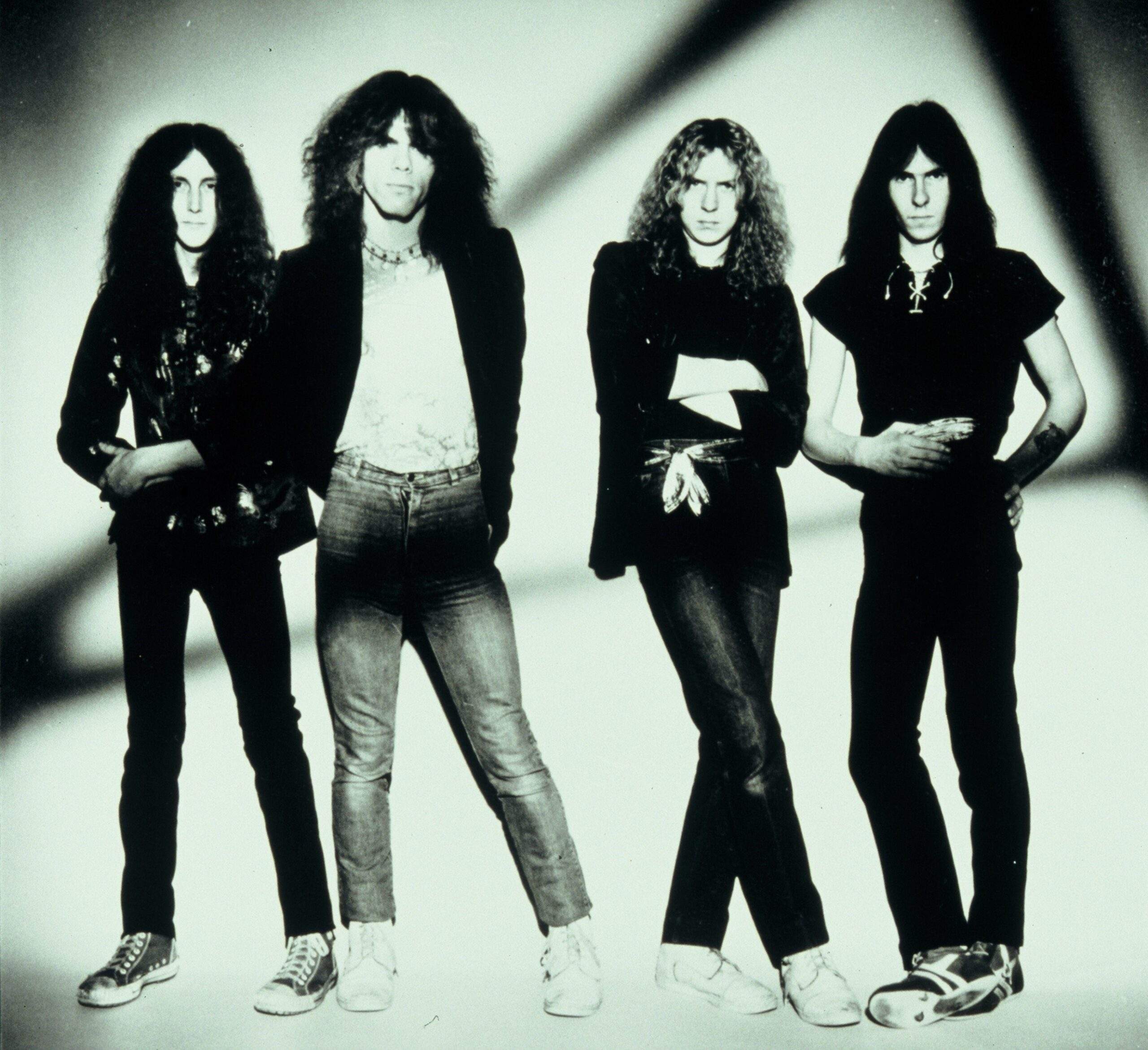
“The next album will be very strong”
The last two years have been very difficult for pretty much anyone, but especially touring musicians. Have you found the isolation creatively challenging or freeing?
Brian Tatler: I hated being told I could not go out and seeing all our live dates being cancelled or postponed time and time again. I decided the best thing I could do was to use the free time effectively and so began writing for the next Diamond Head album. I also went through lots of old tapes looking for unfinished ideas. I came up with some really good ideas and feel that the next album will be very strong. I also went through all my Diamond Head photos and memorabilia and made folders and files to archive them properly. I have the world’s largest collection of Diamond Head posters. It’s all time consuming stuff but here I was with lots of time on my hands. We also managed to get the ‘Lightning To The Nations’ (1980) remaster released during this time. All the mastering and artwork was completed during lockdown.
If we would have a time machine and go back straight to your teenage room, what kind of records and fanzines would we find there?
Brian Tatler: I got into rock music through my older brother David who was six years older than me (he died in 2022). Dave started taking me to concerts from the age of about twelve onwards. We saw Amon Düül II, Ten Years After, Can, Gentle Giant, Black Sabbath, Dr. Feelgood, Budgie, Judas Priest, and ELP.
I started buying records when I was about thirteen, the first album I bought was Led Zeppelin ‘II’ (so off to a good start) followed by Deep Purple’s masterpiece ‘Machine Head’. I also bought ‘Dark Side Of The Moon’ by Pink Floyd, ‘Sad Wings Of Destiny’ by Judas Priest, ‘Let There Be Rock’ by AC/DC, ‘Master Of Reality’ by Black Sabbath, ‘Genesis Live’ by Genesis, ‘Ritchie Blackmore’s Rainbow’ by Rainbow, ‘No Heavy Pettin’ by UFO, ‘Montrose’ by Montrose, ‘Firing On All Six’ by Lone Star and ‘The Impossible Dream’ by Sensational Alex Harvey Band, among others.
I used to read Sounds every week and I had two Music Scene annuals from 1974 and 1975 which featured bands like Led Zeppelin, Black Sabbath and Slade. I don’t think fanzines appeared until Punk happened in 1977. I hardly ever bought fanzines but I bought some Punk Rock singles and I used to listen to the John Peel radio show when he started playing Punk, I was a fan of some of it and I used to make cassette recordings of the songs I liked. I appreciated the raw energy and it helped inspire me to play with aggression. It was much easier to play than the complicated Prog bands of the 70s. I had no chance of playing like Steve Howe of Yes but I could play like Steve Jones of the Sex Pistols.
Diamond Head was formed in my bedroom in 1976 so there would have been our basic equipment set up and my trusty cassette recorder to capture any new ideas. I had posters on my wall of bands like Led Zeppelin, Black Sabbath and Deep Purple et cetera. I also had that classic Easy Rider poster with the two chopper bikes on it.
What are some of the most important players that influenced your own style and what in particular did they employ in their playing that you liked?
Brian Tatler: The main influence on me wanting to learn and get good was Ritchie Blackmore. My brother Dave bought a cheap electric guitar in 1971 and let me use it when he bought a Gibson SG in 1974. I probably started trying to play properly in late 1974 to early ’75. I wanted to be able to play the guitar solo from ‘Highway Star’ but it’s a very difficult solo to copy for a beginner.
Once I was able to move a Barre chord up and down the neck I was away trying to come up with riffs and write songs. Ritchie had a unique style, he even had his own way of voicing chords using the forth rather than the fifth. He had a lot of feel and came up with some amazing solos, one of my all-time favourite solos is in ‘Child In Time’.
I then began to appreciate Jimmy Page, especially as a songwriter, I realised that Ritch was a better lead player but Jimmy was a better songwriter and as I was not really gifted as a lead player I gravitated toward trying to write great riffs and great songs. Next I got heavily influenced by both Michael Schenker and Eddie Van Halen, two of the greatest rock guitarists who have ever lived. I was fortunate to have those two giants around in my lifetime and was able to see them live and copy what I could from their albums.
” We just wanted to enjoy the trip”
Was there a certain concept you had in mind when forming Diamond Head? On that note, if I were to play your “White Album,” what are some of the positive recollections that run through your mind hearing it?
Brian Tatler: No concept other than do it. To form a band and write songs and get gigs. It was hard to keep a stable line up and then hard to get it together for a gig. The first gig was at our old school in Wollaston, February 1977. I was always recording our rehearsals, or practices as we would call them, “band practice” is the term we used at first, long before we had “a rehearsal.” We just wanted to enjoy the trip and improve with each song and each gig.
The studio in Worcester was very “dead” and we did nearly all the songs in one take (although I remember ‘Am I Evil?’ took three takes) getting the drums, bass and rhythm guitar down in one take if possible with Sean Harris singing guide vocals constantly refining his lyrics. Then I would overdub a second guitar and any guitar solos, then finally Sean would record another vocal; for someone just nineteen years old, Sean had astounding timing and pitch. Only years later did I realise how rare a talent like that is.
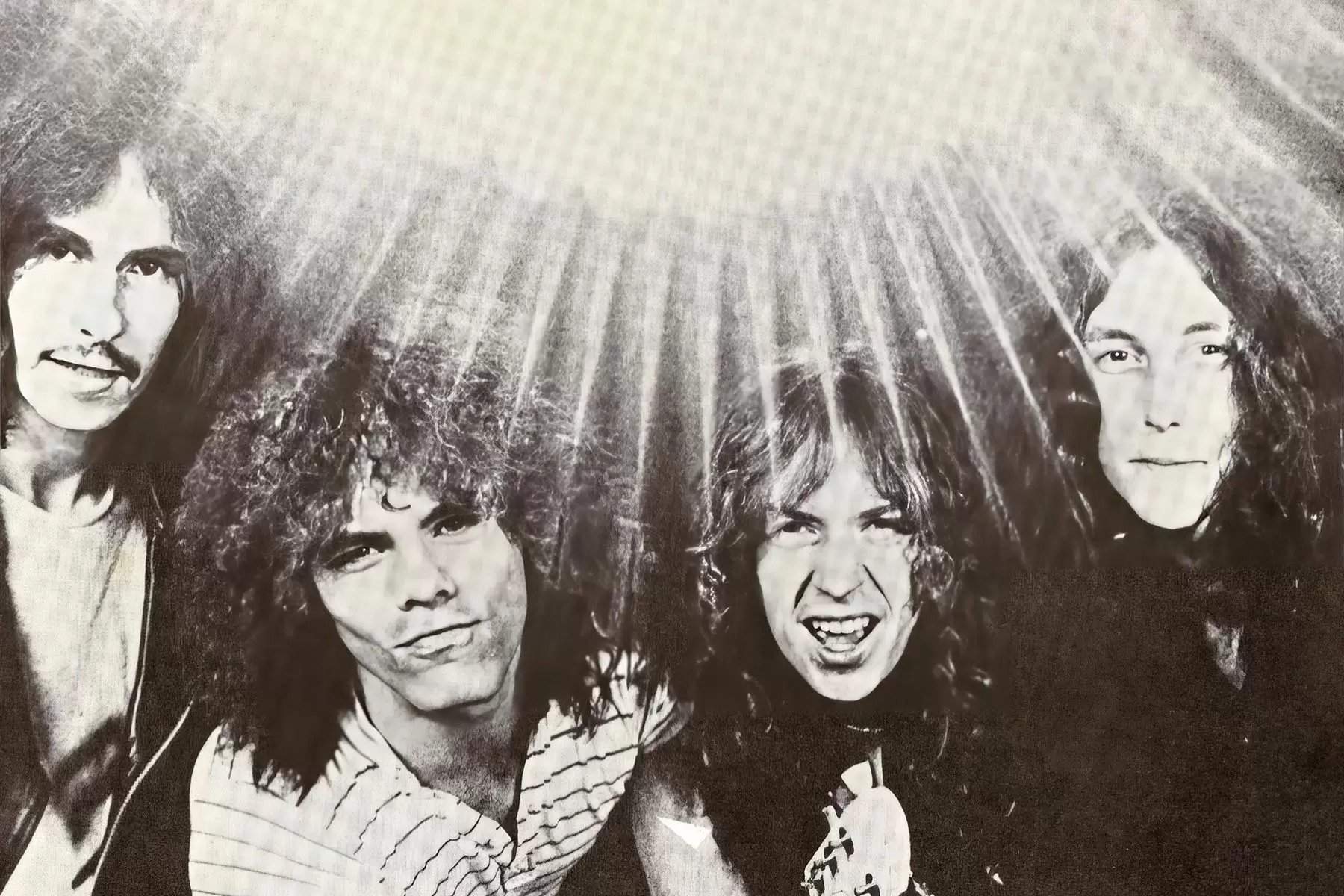
I used my Flying V on every song with a Marshall 2203 model 100 watt amp into a Laney 4×12 cab and a Morley power/wah/boost pedal for solos. I played the whole of ‘Am I Evil?’ with the wah-wah on for a cutting nasal sound. It’s double-tracked, so one side is with the wah on, the other side is without.
The album took seven days to record and mix by engineer Paul Robbins. I have seen our late manager Reg Fellows credited as the producer of ‘Lightning To The Nations’ but in the studio it was just Paul engineering and us making suggestions. Reg would show up in the evening after finishing work. At the time, we felt it wasn’t well produced, but it sounded great in the studio through the big speakers. The stereo guitars sounded fantastic to me especially on ‘Sucking My Love’.
Paul insisted on monitoring with two tiny Auratone speakers mounted on top of the Tweed Audio 30 into 24 desk on the grounds that “If it sounds good on these, it will sound good on anything,” he said.
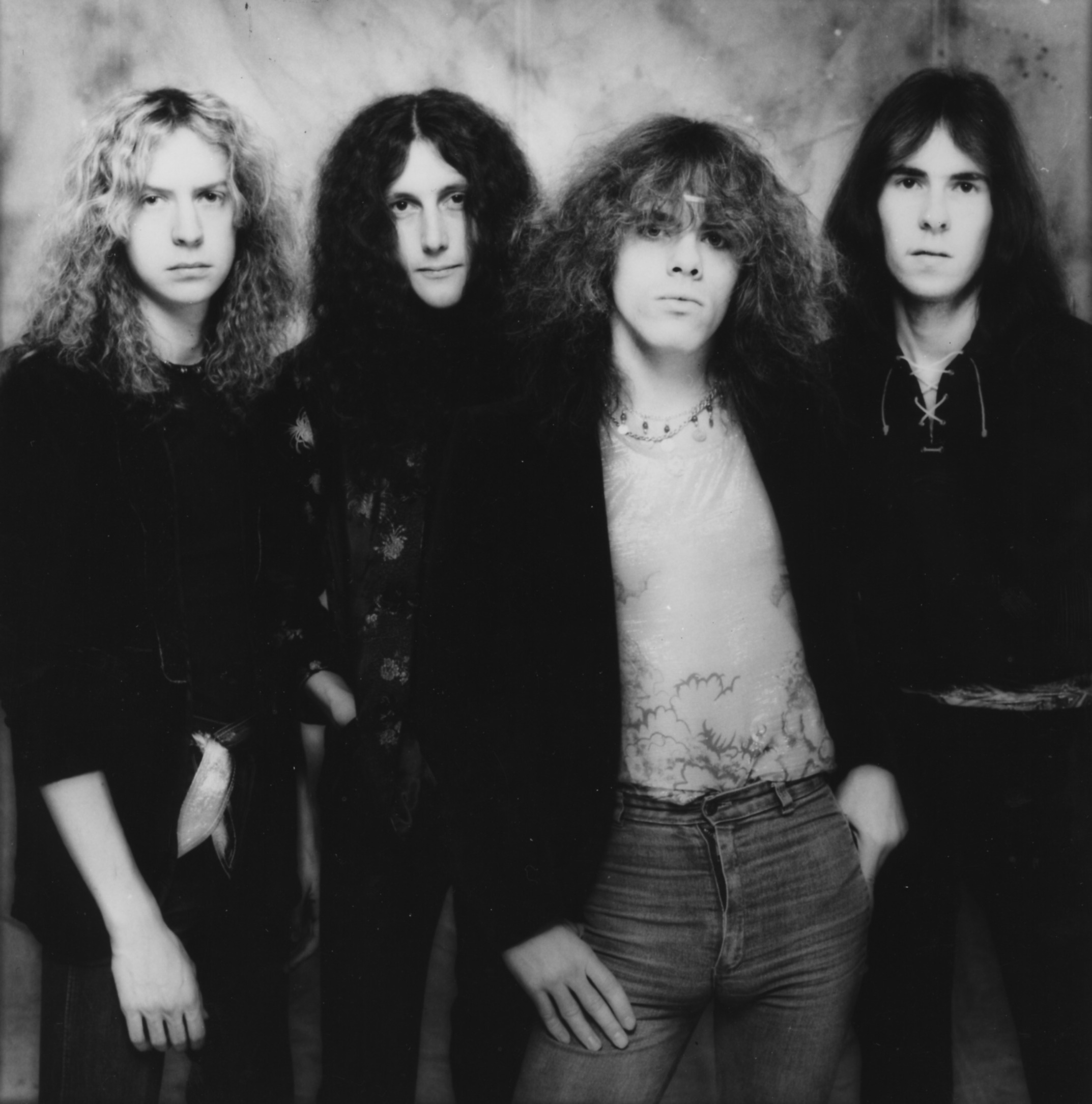
What led to the idea to re-record it with today’s lineup? How did you enjoy working on old material? What was the atmosphere in the studio?
Brian Tatler: In 2019 our drummer Karl Wilcox pointed out that 2020 would be the 40th anniversary of ‘Lightning To The Nations’. Usually we would mark the occasion with some shows devoted to playing the whole album in its entirety but Karl Wilcox suggested, “we could “re-record” the album with this line up and with modern recording technology.” We pondered it for a while and thought, yeah let’s do it. I proposed we also add some cover songs to make it something extra special for the fans who already have the original version. We had to choose, learn and then rehearse the covers but we didn’t need to rehearse the album tracks because we had been playing them live for many years. Everything was recorded individually, starting with the drums because a lot of the time we were in Lockdown so we were not allowed to get together. We got it done fairly quickly then left it up to Ras to sing on it and mix it at his home studio in London. They are much more powerful versions of the songs as technology has changed so much in forty years.
May I ask if there are plans for something new?
Brian Tatler: There are always plans for something new, I worked hard on new material during lockdown, like most other bands. We have had maybe ten rehearsals and made lots of demos. It’s just finding the right time to begin recording the drums. Last year a lot of time was eaten up by auditioning for a new bass player and then preparing to play live again after a very long break from touring. We would also like to do a live album at some point. The last one was back in 2006 so its way overdue and it would be the first to feature Ras.
I hope we can make a new record this year. I am very excited by the new songs that are in the pipeline. This time we have a lot more songs than normal to pick from so the quality will be higher.
Looking back, what was the highlight of your time in the band? Which songs are you most proud of? Where and when was your most memorable gig?
Brian Tatler: I don’t have one particular highlight. I enjoy having a good show. It gives me a sense of satisfaction when everything goes right and it’s a good crowd. The Reading Festival in 1982 was great, it felt like we had been working towards it since we first started. But since then we have done many amazing shows all over the world. The two Sonisphere shows in 2011 were awesome. Just to be onstage opening for the Big 4 and seeing the huge crowds. There have been many memorable shows over the years.
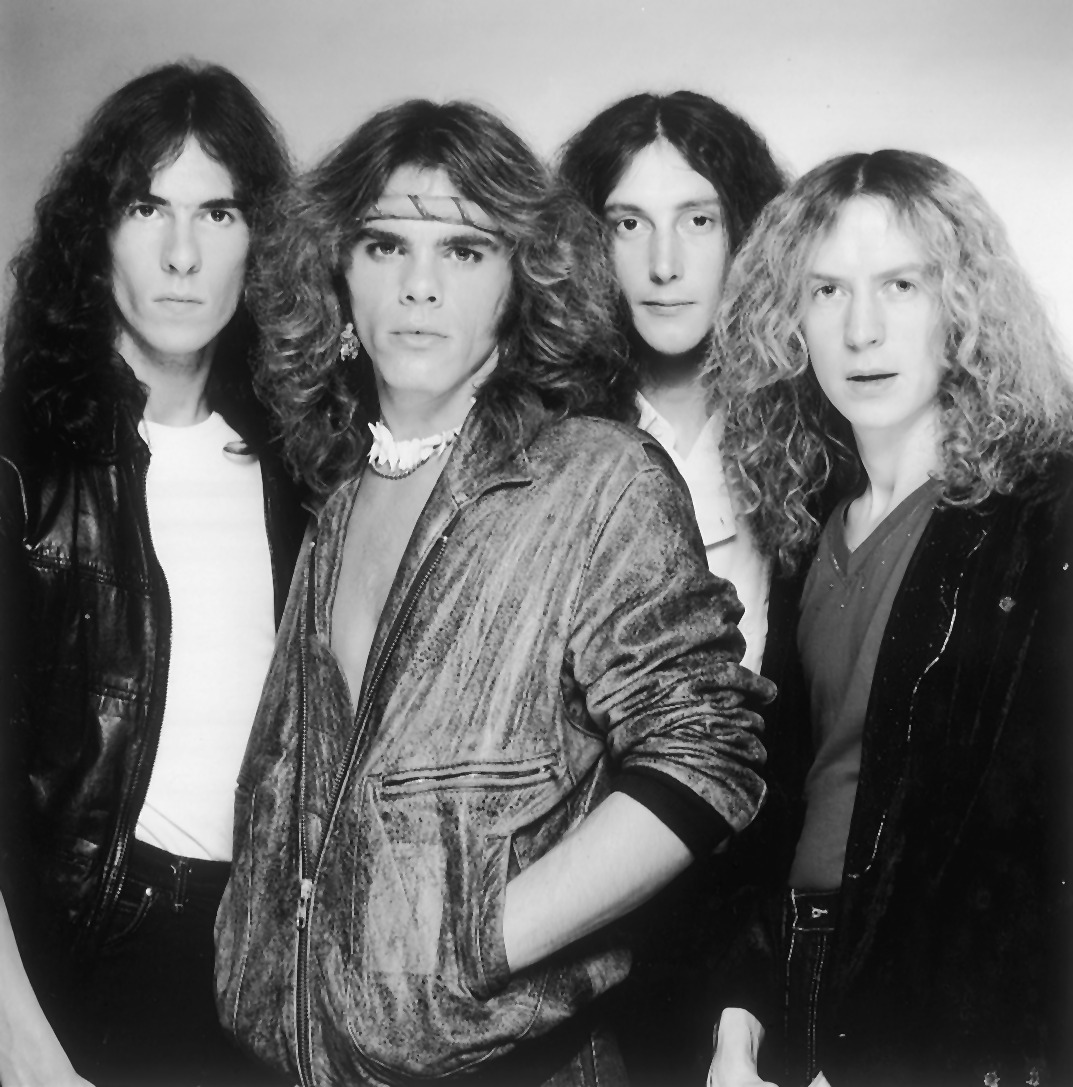
I am most proud of ‘Am I Evil?,’ ‘Bones,’ ‘The Coffin Train,’ ‘In The Heat of the Night,’ ‘It’s Electric,’ ‘Knight of the Swords’ and ‘Run’. All good songs that I think represent the band well.
Give us some insights on developing your guitar technique… what gear, pedals and effects are you using these days?
Brian Tatler: I have been playing for forty seven years and I find it difficult to improve. I mainly try to maintain my playing ability. I have developed a “trigger finger” in my left hand little finger and I can no longer make a fist with my left hand. I also have arthritis in some of my knuckle joints which can slow me down and even be painful. I can only get up to speed for a show or recording session by performing careful warming up techniques. Alternate picking with my right hand has always been a bit “sticky” so I work on that as well. When I first came across fast down picking like James Hetfield is a master of, I really struggled with it, it was very unnatural for me. I have had to work hard to try to improve. All the guitarists I originally set out to be like didn’t do fast down picking.
I do think certain musicians have a real gift while others just achieve what they can through hard work and bloody mindedness. Everything I do I have had to practice a thousand times. Surely a player like Yngwie Malmsteen or Joe Bonamassa has a rare gift in the ability to learn quickly and play things that are completely out of the reach of the majority of guitarists like me. They are one of a kind talents in a sea of millions of guitarists.
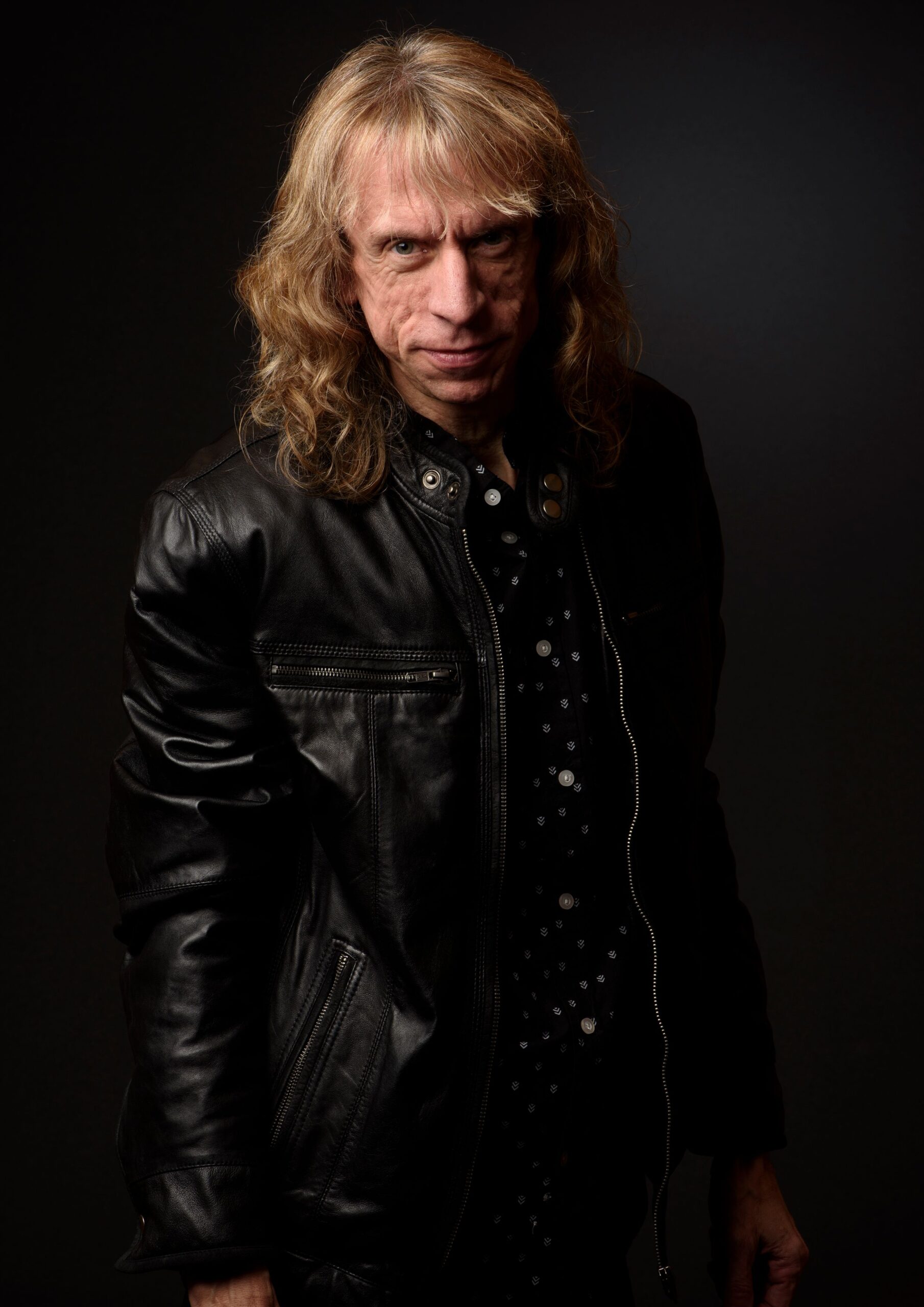
Last year I bought a Kemper so I have been trying to get to grips with that. It’s harder to learn about new technology as you get older. I used it on a recent tour with Saxon and it’s great but I would like to know how to use it better. Before that I was using a Cornford MK H 50 amp with an Ibanez Tube Screamer and a Nova System pedal for delays et cetera.
When did you first hear Diamond Head and what did you think of it?
Karl Wilcox: I first heard and saw Diamond Head in 1978. I thought they were great. The band was tight. Great riffs from Brian Tatler and a sensational vocalist in Sean Harris.
Rasmus Bom Andersen: Well the funny thing is that I never heard Diamond Head’s music until I got a call to audition for them. I grew up more on Grunge and with the bands from that era and hadn’t dived into metal yet. Even though I had of course heard of Metallica, ‘Garage Inc.’ and the other albums that had the covers on them had never crossed my hifi system back then. The first time I actually listened to Diamond Head was doing research after the call with Brian Tatler to find out who or what band I had just said “sure I’ll track a vocal and send back an audition.” In doing the research I listened to a bunch of the albums from newest to oldest.The more modern production sat better with my ears compared to the very very rough production of the “White Album.” I quickly came to recognise and appreciate that the songwriting was however far superior in the earliest material. Brian Tatler would later ask me to go through all the songs and pick out which songs I liked the most and see what would work live. Listening to the whole back catalogue in analysis mode gave me a good insight to what the core writing part of Diamond Head was like and where I felt it belonged should we ever try to write any new material. Luckily that seemed to have worked well to the fans’ appreciation.
Did you ever imagine being part of the band?
Karl Wilcox: I auditioned for the band in the early 80’s but I didn’t get the gig. I later joined Brian Tatler for his solo project Radio Moscow in 1984-86 before joining Sean Harris and Robin George in Notorious in 1987-88.
I was invited to join Diamond Head in 1991 when the decision to put the band back together happened . The rest is …
Rasmus Bom Andersen: As it’s a bit of a funny way that I came into Diamond Head, until I got the final “would you like to officially join” I hadn’t given it much thought. To me this was initially a job and big responsibility that I had to do well in. Once I got asked to be part of Diamond Head officially that changed a little to some degree, but I had never imagined that I’d be fronting a band that has that much legacy and importance in the way Metal music has been shaped. I think I very quickly understood and respected the history of Diamond Head and have always done my best to honour the music and legacy from both the past, to the present and anything in the future.
How would you describe the energy on the stage?
Karl Wilcox: Electric, passionate and firing on 8 cylinders.
Rasmus Bom Andersen: The energy is always high and switched on. Doesn’t matter how tired we might be on tour or after the 10th consecutive show. Once that music starts its all engines revving at full throttle. At least that’s from my view and experience on stage. I think the best POV here would be from the fans, but I’d like to think that they pull out all the stops and use the stage craft well. I definitely see Abbz [Andy Abberley] doing his crazy energy stomps and windmill guitar moves, Brian always has that class and headbangs with his golden locks while Paul looks menacing and works the stage.
I hope I bring a lot of energy to the stage as a frontman. I have a few years on the rest of the guys in the band so hopefully that helps. I did get told recently from another frontman that “I run around like a daft cunt on stage”. That must mean I’m doing something for the energy. In any case I always tend to scout the stage prior to showtime for anything stupid to do like jumps off the side fills or how I can get into the crowd. You gotta do it! There is only one show per night and all the people who come to the show deserve the full money.
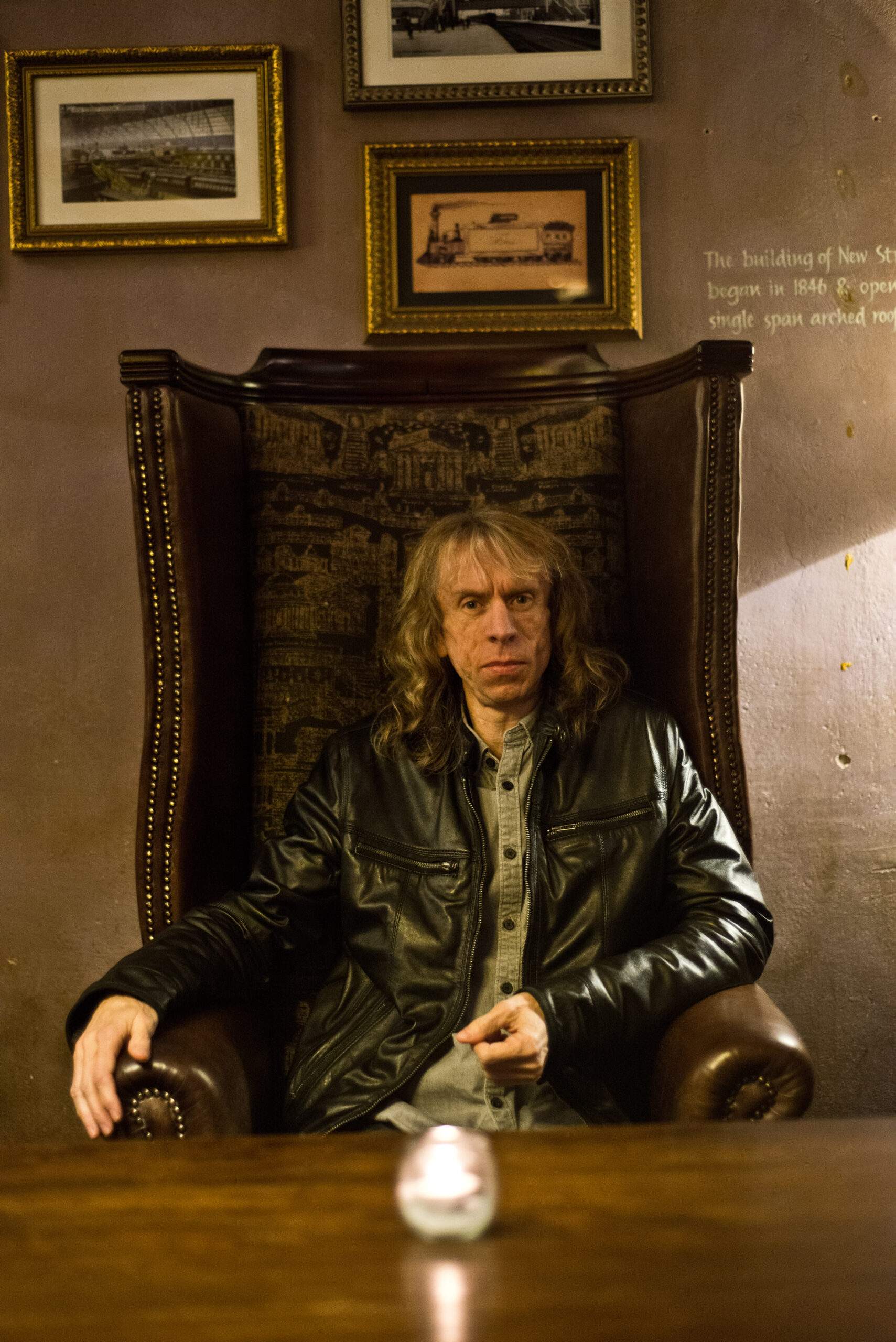
Do you have any active side-projects going on at this point?
Karl Wilcox: Currently I have several side projects. My own Too Close for Missiles with Dodge Turner in the UK. I get to write, play rhythm guitar, bass and drums as well as most of the production.
We’re in pre-production now for the follow-up album. Very different from Diamond Head.
Misfit Jungle with Roman SnakeJam (Bravo Delta) who is a former Electra Records session and touring Kat along with Hasan, a rap/hip hop writer/producer and former Sony artist.
BIA (Brothers in Arms) with Jack Frost – Guitars: Aldo Nova, Joey Belladonna, The Bronz Casket Co, Seven Witches and several other bands). There are several guest vocalists: Keith St John (Montrose, Kingdom Come, George Lynch, Quiet Riot and Tracii Guns, LA Guns) Steve Overland (FM), Andrew Freeman (Last in Line), Nick Walsh (Silk Toxik), Paul Shortino (Rough Cut and King Cobra), Todd Poole (Roxy Blue) with Alex Jansen (Hardline, Primal Fear and Doro) on bass and Charlie Calv (Angel) on keys and production and Bruce Hall (REO Speedwagon).
BIA 2 will commence recording shortly. And finally I will be working on the next Seven Witches album. On a personal note I’m thrilled to be joining WFL 111 drum company as an endorser. Bill is the great grandson of Ludwig founder Bill Ludwig. He is making custom drums the way his grandfather and father did back in the day. Drummers John Bonham, Cozy Powell and Ian Paice were using it way back. All of them were my drumming hero’s. I’m totally stoked.
Rasmus Bom Andersen: Nothing I can divulge about at this point. I generally do a lot of music production so most of my time away from Diamond Head I spend in my studio at rawsoundstudio.co.uk working with other artists grafting their music and releases or with bigger brand companies on their projects.
Klemen Breznikar
Headline photo: Diamond Head (1982)
Diamond Head Official Website / Facebook / Instagram / Twitter / YouTube

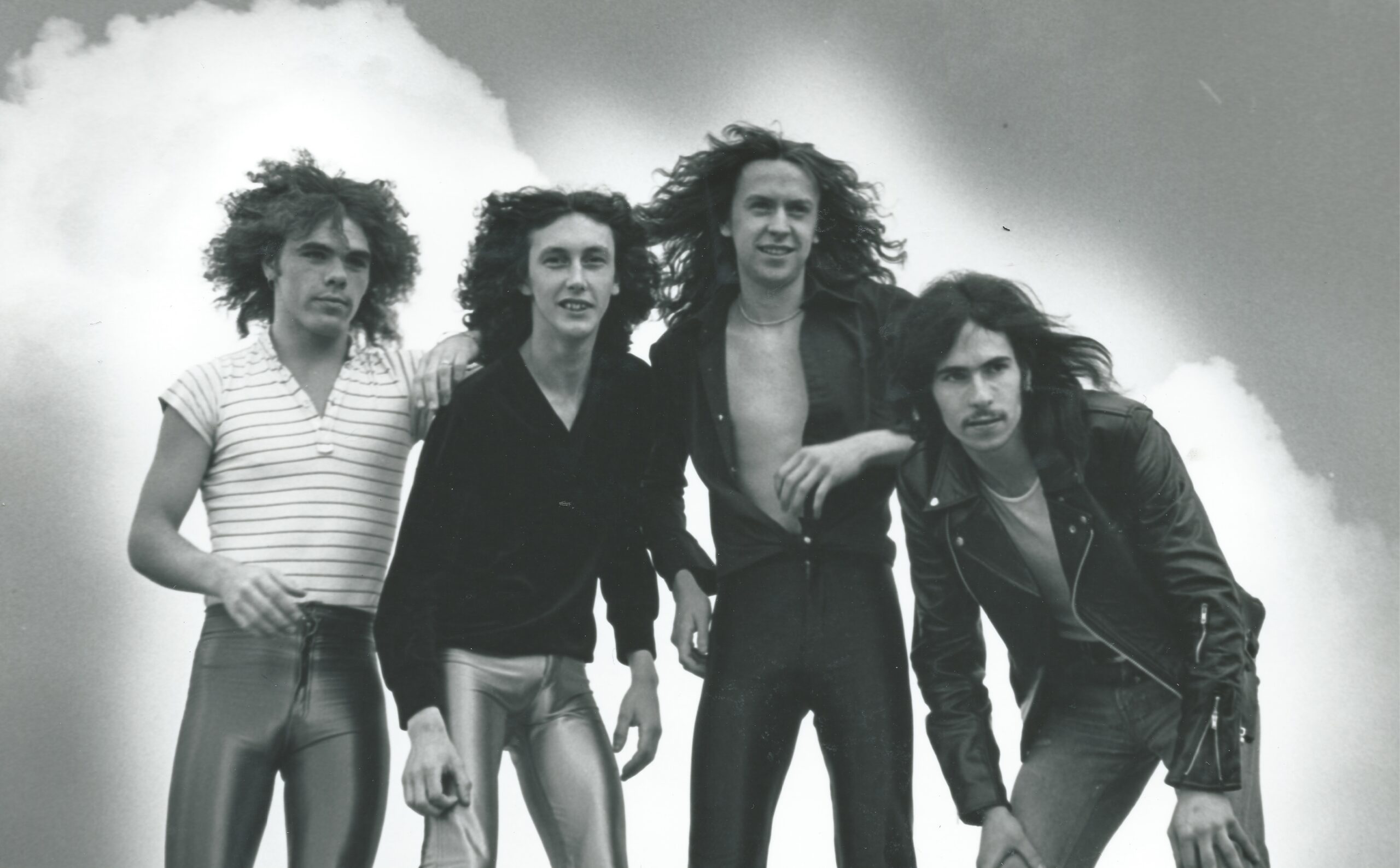

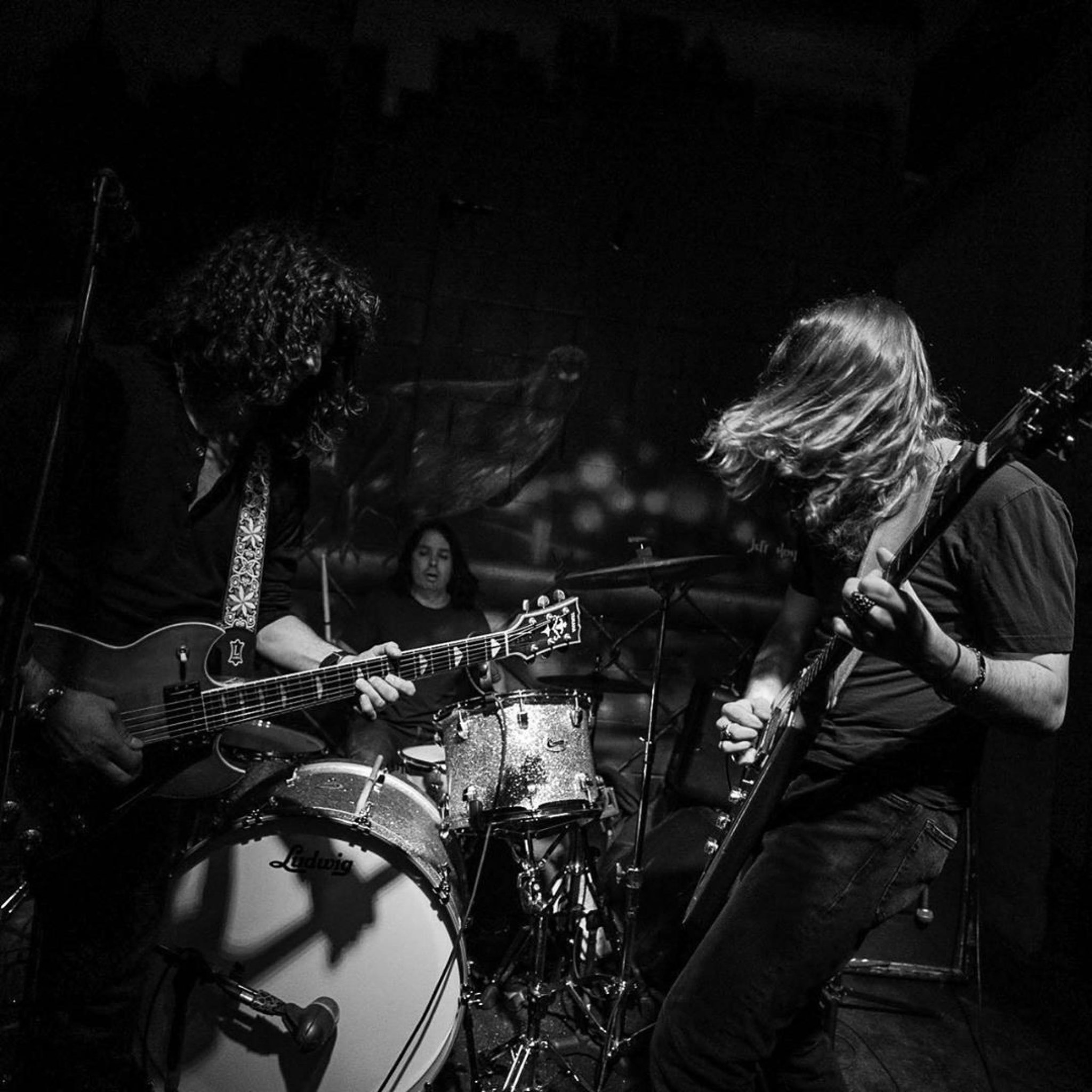
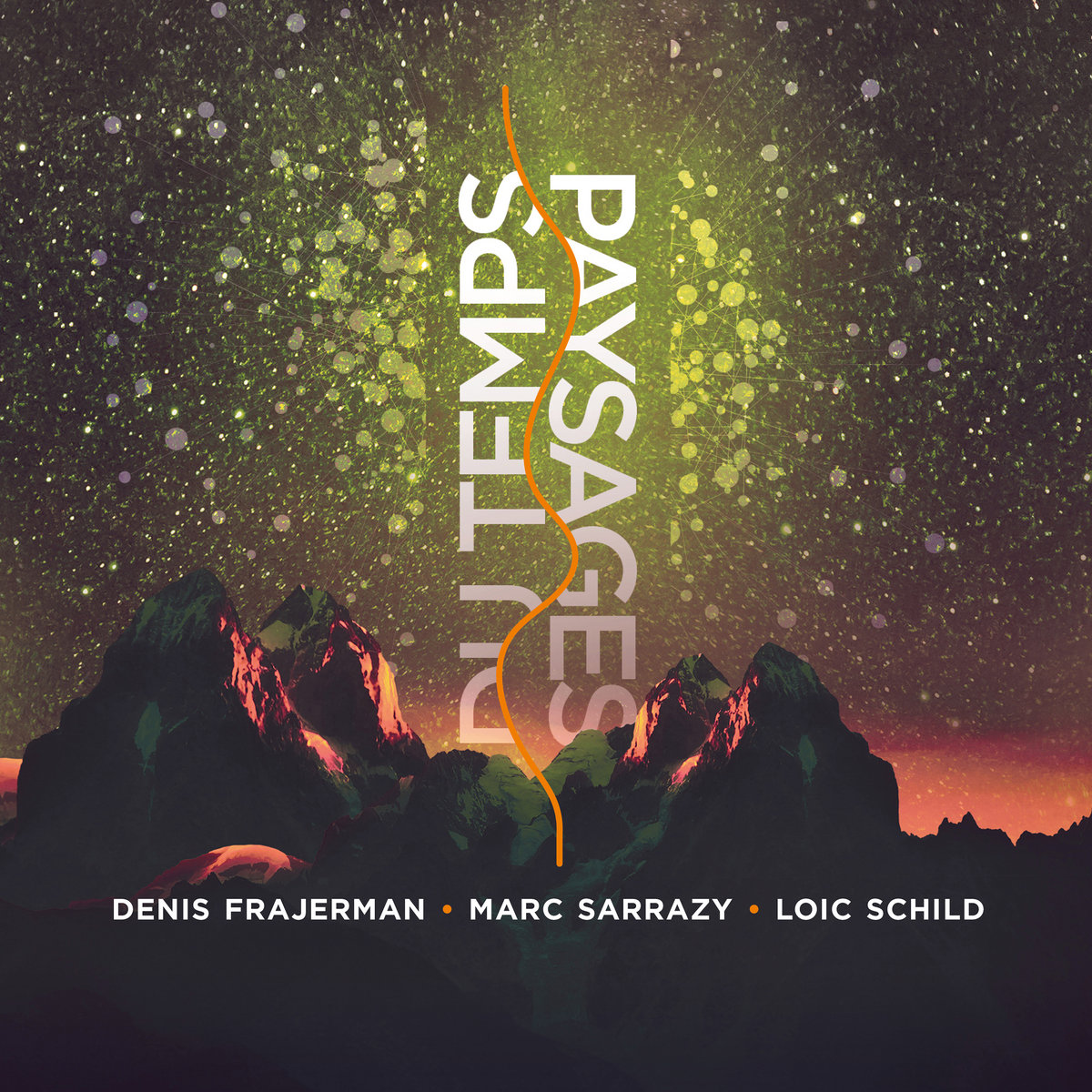
Nice to feature the legendary cult band who influenced some of the greatest bands in Rock.